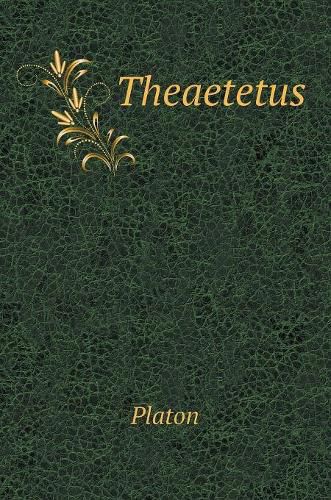Readings Newsletter
Become a Readings Member to make your shopping experience even easier.
Sign in or sign up for free!
You’re not far away from qualifying for FREE standard shipping within Australia
You’ve qualified for FREE standard shipping within Australia
The cart is loading…






This title is printed to order. This book may have been self-published. If so, we cannot guarantee the quality of the content. In the main most books will have gone through the editing process however some may not. We therefore suggest that you be aware of this before ordering this book. If in doubt check either the author or publisher’s details as we are unable to accept any returns unless they are faulty. Please contact us if you have any questions.
Plato’s philosophy almost all riddled with ethical problems: in his dialogue addresses issues such as: the nature of the highest good, its implementation in the behavioral acts of people in society. Moral philosophy of Plato developed by naive eudemonism (Protagoras) to the idea of
absolute morality (the dialogue Gorgias ). In the dialogues of Gorgias , Theaetetus , Phaedo , Republic Plato’s ethics gets ascetic orientation: it requires a purification of the soul, free from worldly pleasures, full of sensual pleasures of social life. Man’s task is to rise above the clutter (imperfect world of the senses) and all his soul to strive for assimilation to God, which is not in contact with anything evil ( Theaetetus ); to free the soul of all flesh, to focus on its own, on the inner world of speculation and deal with the true and eternal only ( Phaedo ). Plato characteristic of reconciling evdemonichekaya position, which is set out in the dialogues Fileb and laws. In all the works of Plato refers to the existence of eros, the desire for the highest ideal of beauty and eternal fullness of being.
$9.00 standard shipping within Australia
FREE standard shipping within Australia for orders over $100.00
Express & International shipping calculated at checkout
This title is printed to order. This book may have been self-published. If so, we cannot guarantee the quality of the content. In the main most books will have gone through the editing process however some may not. We therefore suggest that you be aware of this before ordering this book. If in doubt check either the author or publisher’s details as we are unable to accept any returns unless they are faulty. Please contact us if you have any questions.
Plato’s philosophy almost all riddled with ethical problems: in his dialogue addresses issues such as: the nature of the highest good, its implementation in the behavioral acts of people in society. Moral philosophy of Plato developed by naive eudemonism (Protagoras) to the idea of
absolute morality (the dialogue Gorgias ). In the dialogues of Gorgias , Theaetetus , Phaedo , Republic Plato’s ethics gets ascetic orientation: it requires a purification of the soul, free from worldly pleasures, full of sensual pleasures of social life. Man’s task is to rise above the clutter (imperfect world of the senses) and all his soul to strive for assimilation to God, which is not in contact with anything evil ( Theaetetus ); to free the soul of all flesh, to focus on its own, on the inner world of speculation and deal with the true and eternal only ( Phaedo ). Plato characteristic of reconciling evdemonichekaya position, which is set out in the dialogues Fileb and laws. In all the works of Plato refers to the existence of eros, the desire for the highest ideal of beauty and eternal fullness of being.